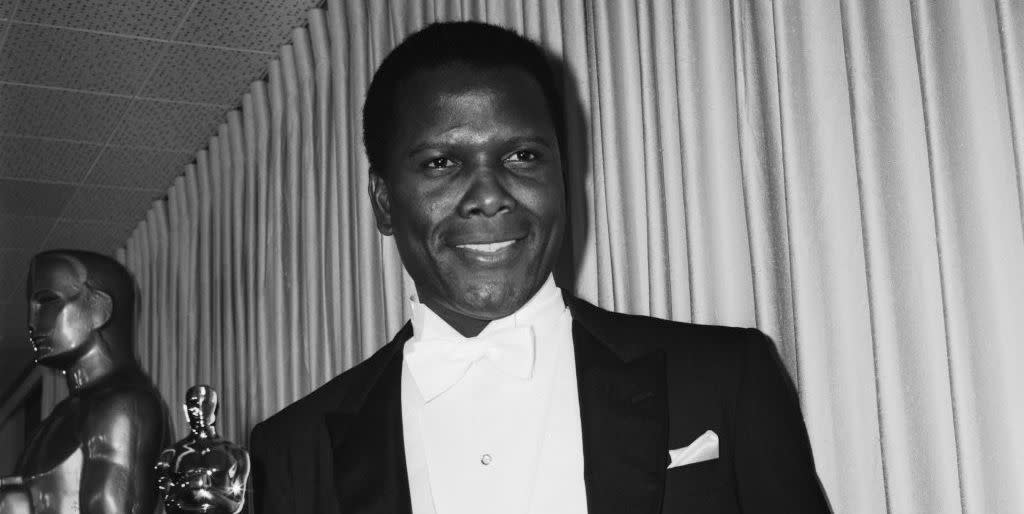Trailblazing Actor Sidney Poitier Has Died at 94

- Oops!Something went wrong.Please try again later.
- Oops!Something went wrong.Please try again later.
Actor Sidney Poitier—a formative figure of classic Hollywood and an icon for the Black creative community—has died, according to The New York Times. He was 94 years old. Poitier leaves behind his wife, Joanna Shimkus, and five of six children: Beverly, Pamela, Sherri, Anika, and Sydney Tamiia Poitier. His other daughter, Gina Poitier, passed away in 2018.
Sidney Poitier starred in a number of classic films during his decades-long career as an actor, including A Raisin in the Sun and The Defiant Ones, but his portrayal of Homer Smith in Lilies of the Field is what helped him make history. In 1964, Poitier became the first Black man to win Best Actor at the Academy Awards. He was also the first Black man to win an international film award at the 1957 Venice Film Festival and the first to be nominated for a lead actor Oscar overall.
"I had a sense of responsibility not only to myself and to my time, but certainly to the people I represented," Poitier said in 2008 of being such a prominent "first." "So I was charged with a responsibility to represent them in ways that they would see and say, 'OK, I like that.'"

Poitier was dedicated to taking roles that broke long-standing stereotypes regarding Black men in cinema. He played the first Black romantic lead in 1961's Paris Blues and, alongside actress Katharine Houghton, portrayed the first interracial kiss in a major Hollywood film in 1967's Guess Who's Coming to Dinner. For 1969's The Lost Man, he insisted that at least half of the hired film crew be Black—an unprecedented requirement at the time. In addition to his trailblazing acting career, Poitier was also a prominent activist within the civil rights movement, attending the March on Washington alongside Dr. Martin Luther King Jr. and advocating for those in poverty.
The actor was often scrutinized for taking on roles that appealed to white moviegoing audiences, and he frequently spoke out about why he made such "safe" career decisions.

"It's a choice, a clear choice," the actor said in a 1967 interview, per The New York Times. "If the fabric of the society were different, I would scream to high heaven to play villains and to deal with different images of Negro life that would be more dimensional. But I'll be damned if I do that at this stage of the game."
In a way, Poitier was the first Black celebrity to openly acknowledge the burden of representation in pop culture. In his memoir, he wrote about the pressure of standing in for the entire Black community at the height of his career.
"I felt very much as if I were representing 15, 18 million people with every move I made," Poitier wrote.
You Might Also Like

